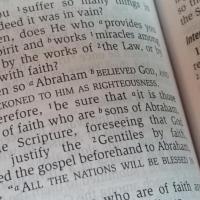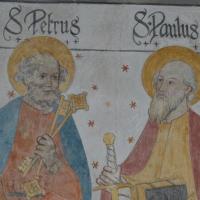"Every generation in which the Temple is not rebuilt, is considered guilty of its destruction." Our Master knew that baseless hatred was the sin which was going to cause his generation to forfeit the redemption and go into exile. Therefore he called upon his generation to repent, and by repent, he meant, "Love God," and "Love one another." Love is at the center of his Gospel message.
Why was the second Temple destroyed at a time when people occupied themselves with the study of Torah, the observance of the commandments, and the practice of charity? Because baseless hatred prevailed within them. (b.Yoma 9b)


















